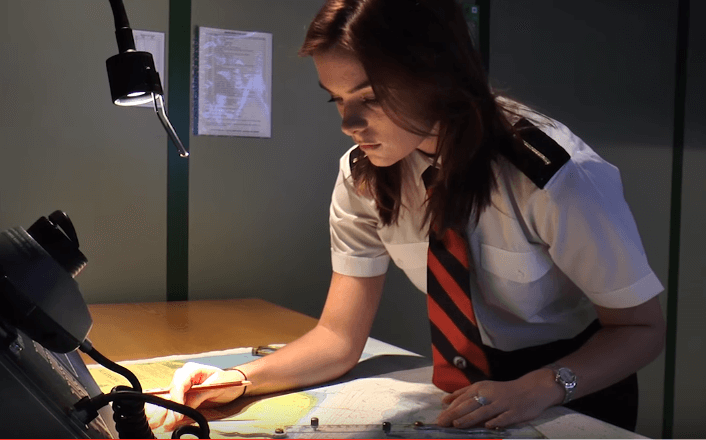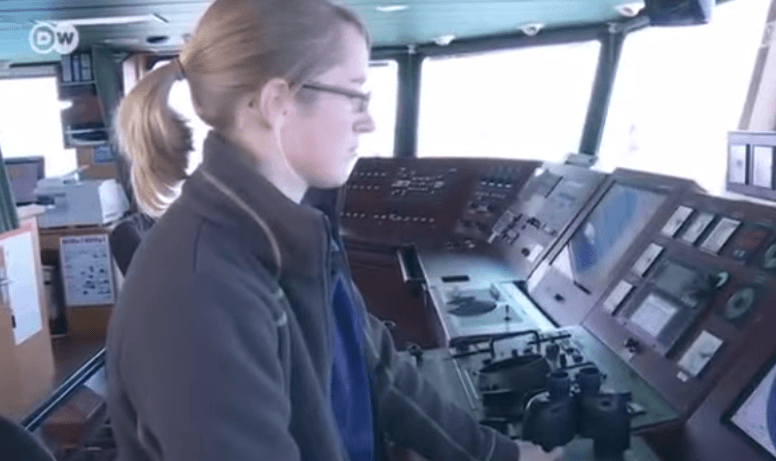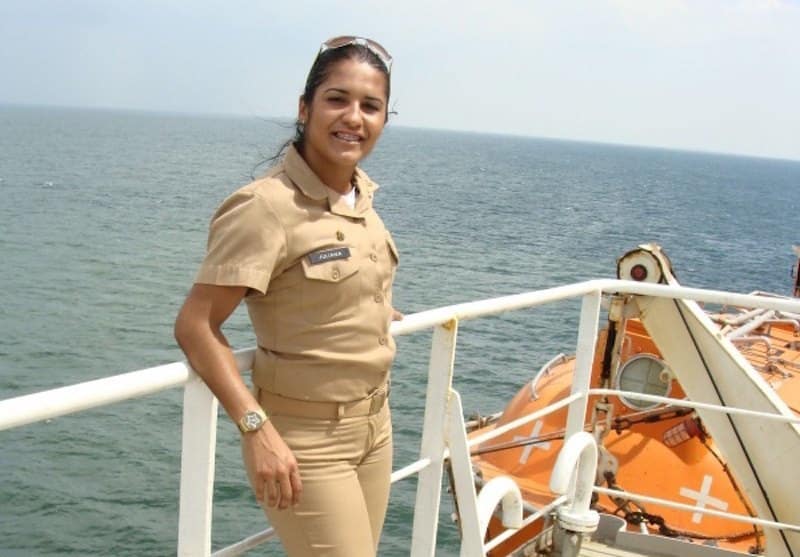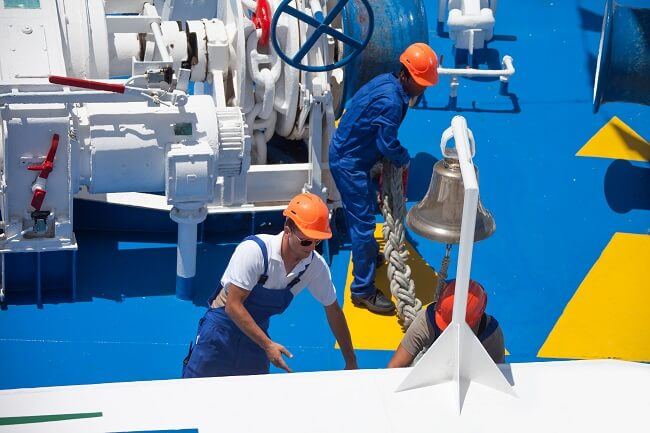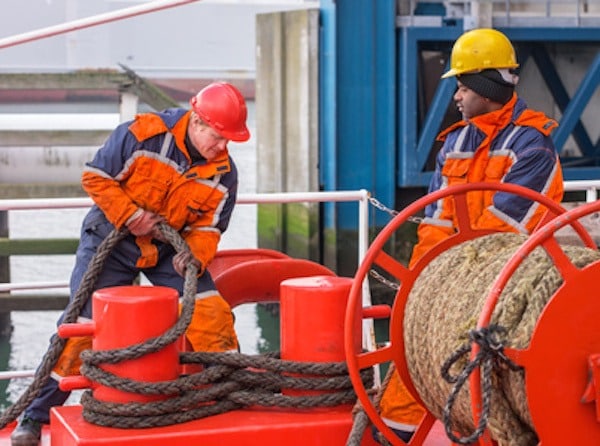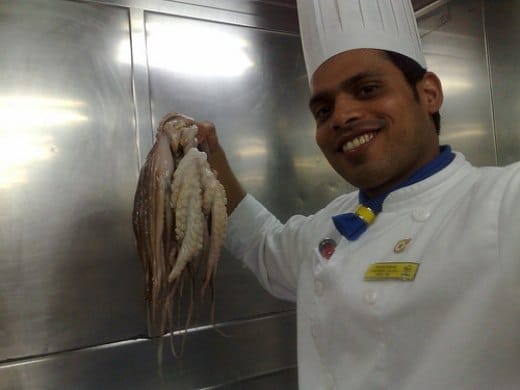Shipping industry and seafarers bring prosperity to the world. However, the female count in the maritime industry is very limited. Mostly women don’t wish to join this challenging profession because of many reasons which have already discussed earlier.However the chosen few are doing a great job out at the seas with their heads held high up.
A maritime career doesn’t always mean a career at sea. It is quite natural for any seafarer to look for a shore job after they have spent a considerable period of time working at the seas. While on work it is all about being away from home, from friends and families. Sense of isolation and boredom is not uncommon in any seafarer’s life. At some point of time in their career most of the seafarers would want to look for jobs ashore. It seems seafarers are often not aware of some shore side career opportunities.
Shipping is a massive industry developed into spin offs with many sectors to be in. Seagoing experience is vital and realistic. We must know that every seafarer can settle for a job ashore, which values his or her skills, knowledge and experience. The training and experience acquired from a career in shipping can be used across industries ashore and many diverse areas. To survive and do well one has to keep on upgrading his/her skills.
Credits: Corepics/depositphotos.com
There are very many sectors where seafarers can join and make a good fortune. Some of them are listed below:
1. Maritime Lecturer or Instructor: Maritime training institutions are growing in a good number. Experienced Seafarers willing to teach can join such institutions and can dedicate themselves to the development and fine tuning of quality maritime training programs that will ensure that quality graduates are provided to the maritime industry. It is very important to train the budding ship officers and help them think critically and solve problem as would be expected of them when onboard. Seafarers can use their own experience and previous research to impart knowledge to the students, educate and prepare aspiring seafarers for life at sea so that they can perform their duties onboard diligently and efficiently. A number of maritime academies/universities run training vessels where extra-ordinarily good faculties are required to provide the necessary maritime background knowledge. An attractive solution would seem to be to engage deck officers or marine engineers who have abandoned sailing with sufficient sea time. Seafarers thus having worked onboard ships can contribute to the training and development of the next generation of seafarers and assist them in their pursuit of fulfilling their dreams.
2. Maritime Surveyor: Any deck officer with a certificate of competency as a Master on a foreign going vessel and a ship’s engineer a certificate of competency as a chief engineer are eligible to become a class surveyor for ships to check sea worthiness. A class surveyor is responsible for conducting surveys and inspections on ships structure and marine equipment according to national and international rules to determine overall condition and ensure quality and safety of ships. A well experienced seafarer has good observational skills and technical knowledge and is already aware of the ins and outs of the ship. It is thus quite easy for him/her to find out the loopholes and prepare the ship well for a safe voyage. Any seafarer with sufficient sea experience can undergo distant learning courses in marine surveying from renowned universities which can help in increasing professional skills and in a better understanding of the roles and responsibilities of a marine surveyor.
Credits: ISWAN Videos/YouTube
3. Maritime Author: Another option for seafarers who have abandoned sailing after spending a long time at sea is to become an author. A seafarer can bring to the book that she has written her long experience of sailing and the knowledge she has gained over the years which should prove extremely useful to Marine officers. A well experienced seafarer has overcome all the hurdles of sea life and knows exactly what is expected of young officers to clear their competency exams. Keeping this in mind maritime books can be written primarily intended for not only helping students to prepare for their exams but as well as to gain a clear idea regarding the subject. It can present to mariners in a crisp as well as lucid manner the necessary knowledge of the subject. Help can be taken from existing authors who can have some great insights and suggestions.
4. Entrepreneur: Having made enough savings one can think of starting her own small business ashore and be your own boss. Entrepreneurship demands passion, persistence and tenacity which is nothing new to seafarers. Women seafarers can consider launching a home based bakery or catering business or anything that they are passionate about. Food is always in demand and there will always be a market for food based businesses. Smaller home gatherings can be handled with a business partner. Investing in a franchise is also a great way to become a business owner without having to come up with a concept or marketing strategy. There are many other ways whereby a mariner can invest and start her own business. Some can even think of starting a boutique.
8 Career Options For Women Seafarers After Sailing At Sea
Shipping industry and seafarers bring prosperity to the world. However, the female count in the maritime industry is very limited. Mostly women don’t wish to join this challenging profession because of many reasons which have already discussed earlier.However the chosen few are doing a great job out at the seas with their heads held high up.
A maritime career doesn’t always mean a career at sea. It is quite natural for any seafarer to look for a shore job after they have spent a considerable period of time working at the seas. While on work it is all about being away from home, from friends and families. Sense of isolation and boredom is not uncommon in any seafarer’s life. At some point of time in their career most of the seafarers would want to look for jobs ashore. It seems seafarers are often not aware of some shore side career opportunities.
Shipping is a massive industry developed into spin offs with many sectors to be in. Seagoing experience is vital and realistic. We must know that every seafarer can settle for a job ashore, which values his or her skills, knowledge and experience. The training and experience acquired from a career in shipping can be used across industries ashore and many diverse areas. To survive and do well one has to keep on upgrading his/her skills.
Credits: Corepics/depositphotos.com
There are very many sectors where seafarers can join and make a good fortune. Some of them are listed below:
1. Maritime Lecturer or Instructor: Maritime training institutions are growing in a good number. Experienced Seafarers willing to teach can join such institutions and can dedicate themselves to the development and fine tuning of quality maritime training programs that will ensure that quality graduates are provided to the maritime industry. It is very important to train the budding ship officers and help them think critically and solve problem as would be expected of them when onboard. Seafarers can use their own experience and previous research to impart knowledge to the students, educate and prepare aspiring seafarers for life at sea so that they can perform their duties onboard diligently and efficiently. A number of maritime academies/universities run training vessels where extra-ordinarily good faculties are required to provide the necessary maritime background knowledge. An attractive solution would seem to be to engage deck officers or marine engineers who have abandoned sailing with sufficient sea time. Seafarers thus having worked onboard ships can contribute to the training and development of the next generation of seafarers and assist them in their pursuit of fulfilling their dreams.
2. Maritime Surveyor: Any deck officer with a certificate of competency as a Master on a foreign going vessel and a ship’s engineer a certificate of competency as a chief engineer are eligible to become a class surveyor for ships to check sea worthiness. A class surveyor is responsible for conducting surveys and inspections on ships structure and marine equipment according to national and international rules to determine overall condition and ensure quality and safety of ships. A well experienced seafarer has good observational skills and technical knowledge and is already aware of the ins and outs of the ship. It is thus quite easy for him/her to find out the loopholes and prepare the ship well for a safe voyage. Any seafarer with sufficient sea experience can undergo distant learning courses in marine surveying from renowned universities which can help in increasing professional skills and in a better understanding of the roles and responsibilities of a marine surveyor.
Credits: ISWAN Videos/YouTube
3. Maritime Author: Another option for seafarers who have abandoned sailing after spending a long time at sea is to become an author. A seafarer can bring to the book that she has written her long experience of sailing and the knowledge she has gained over the years which should prove extremely useful to Marine officers. A well experienced seafarer has overcome all the hurdles of sea life and knows exactly what is expected of young officers to clear their competency exams. Keeping this in mind maritime books can be written primarily intended for not only helping students to prepare for their exams but as well as to gain a clear idea regarding the subject. It can present to mariners in a crisp as well as lucid manner the necessary knowledge of the subject. Help can be taken from existing authors who can have some great insights and suggestions.
4. Entrepreneur: Having made enough savings one can think of starting her own small business ashore and be your own boss. Entrepreneurship demands passion, persistence and tenacity which is nothing new to seafarers. Women seafarers can consider launching a home based bakery or catering business or anything that they are passionate about. Food is always in demand and there will always be a market for food based businesses. Smaller home gatherings can be handled with a business partner. Investing in a franchise is also a great way to become a business owner without having to come up with a concept or marketing strategy. There are many other ways whereby a mariner can invest and start her own business. Some can even think of starting a boutique.
Image Credits: adports.ae
5. Ship Broking and Chartering: Ship broking is not a complex profession for those who have worked in the shipping industry. As a profession it has continued to grow in presence. A ship broker is the one who acts as a negotiator between ship owners and charterers. Ship broker’s role can be classified as finding ships for cargoes and cargo for ships. This function necessarily requires an in-depth knowledge of ship and cargoes, methods of loading and discharging of various cargoes, weather patterns etc. New entrants can take up educational courses offered by the Institute of Chartered Shipbrokers to get a deeper insight of the profession. Organisations such as Clarksonsalso conducts trainee broker programme which makes one a better professional. Such program provides a fantastic insight into the culture and environment of a leading ship broking firm and helps you make a difference in the global level. They also provide internships in leading broker house.
6. Ship Operation Management: Working in the ship management is one of the most interesting and challenging sectors of shipping. As the name suggests ship management involves the process of managing the ship for an agreed period of time. Ship management has different areas to be looked after- commercial, operations, technical, crewing, finance, administration, quality and safety. A well experienced navigating officer can later join shipping companies ashore as fleet manager, safety and quality manager, training officer, technical manager and so on. Navigating officers can enrol themselves into various management courses, both distant and regular which can help them analyse the core business requirements. These courses equip them with the skills, knowledge and tools that they need to formulate business strategies and manage their business successfully. Shipping companies prefer to absorb officers who have already worked onboard their vessels as they already hold a developed relationship with them. It is easier to recruit officers who already have a fair idea about the company.
7. Maritime Regulatory Authorities: Government jobs are starting to get attractive again. Marine officers can also enjoy the benefits of government job by working under the Ministry of Shipping. Seafarers with a certificate of competency as a Master of a foreign going ship are also eligible to join the esteemed maritime regulatory authorities like the Director General of Shipping as principal officer or Nautical surveyors who are responsible for conducting examinations for masters and mates. They can also join in higher posts like the deputy director general, assistant director or Nautical Advisor.
Additional qualifications such as having a masters degree in Maritime Affairs or Maritime Policy are highly desirable. Nature of work involves implementing the ISPS code, working in connection with the Port State Control, regulate employment to seamen and other duties as required. Engineers with a first class certificate of competency or extra first class engineers certificate are also eligible for the same. The method of recruitment is directly through UPSC (Each country has its own type of examination). One who is interested has to follow the employment news for circulars and further information.
Credits: imo.org
8. Ports And Harbour Management And Pilotage: Ports are busy places and offer exciting job opportunities in many different areas. Ports have to move with the times in response to global shifts in maritime trade if they are to remain competitive. Hence they require efficient and skilful professionals to develop strategic business plans. Some of the jobs available in port operations involve technical work, administration, management, vessel traffic services and pilotage. Seafarers who have served in a senior capacity at sea have the required skill, knowledge and understanding and are therefore ideal for the above posts. Additionally a degree in port management can serve as an excellent opportunity to gain in-depth knowledge of the rules and regulations that go into operating ports globally and the economic and commercial aspects of port operations.
Thus this brings us to a conclusion that there is plethora of jobs available ashore. Please do note that this is not an exhaustive list. You can do any kind of job you are passionate about. Seafarers have a rounded view of how the international shipping industry fits together. With dedication, knowledge and the right skills seafarers are apt for shore based jobs. After gaining sufficient sea experience one can make a transition from sea to shore and settle ashore and stay connected to their near and dear ones.
Disclaimer: The authors’ views expressed in this article do not necessarily reflect the views of Merchant Navy Zone. Data and charts, if used, in the article have been sourced from available information and have not been authenticated by any statutory authority. The author and Marine Insight do not claim it to be accurate nor accept any responsibility for the same. The views constitute only the opinions and do not constitute any guidelines or recommendation on any course of action to be followed by the reader.

